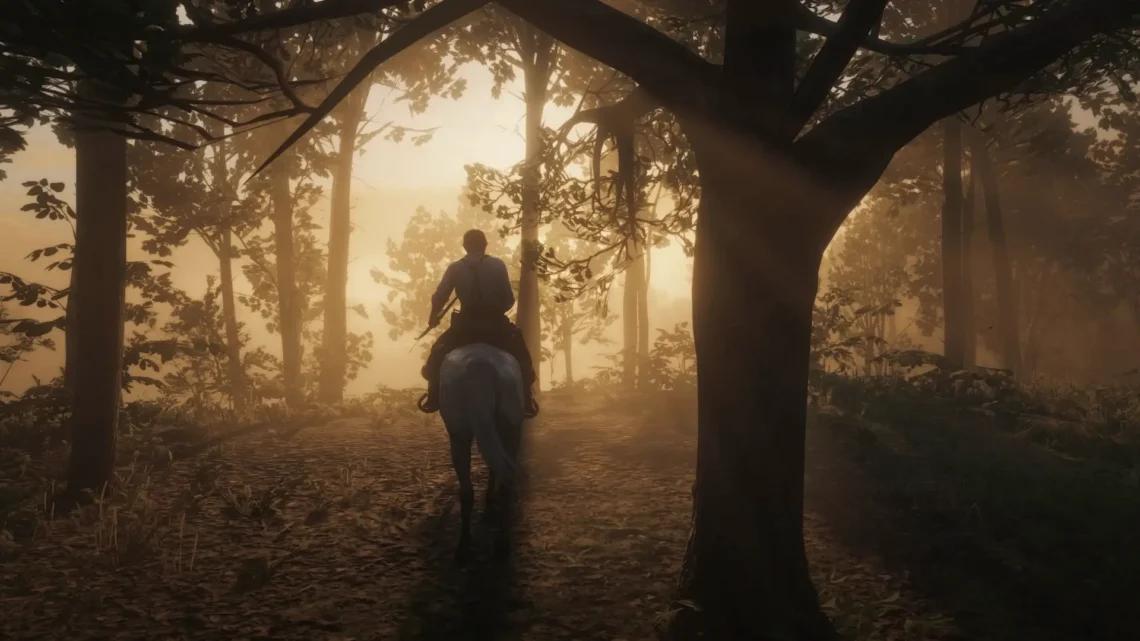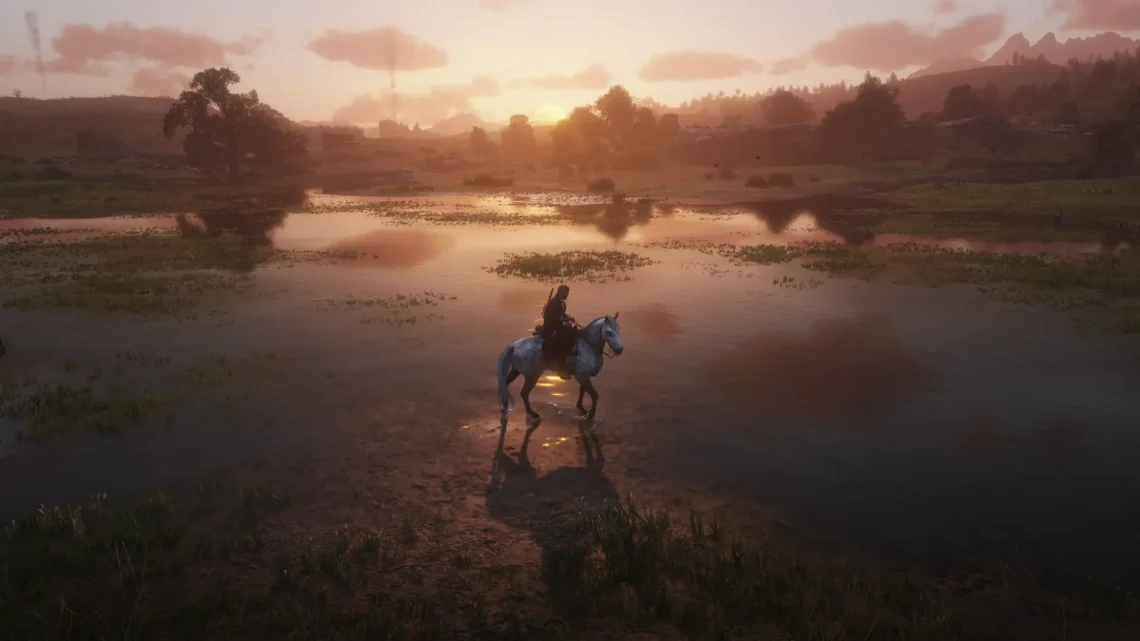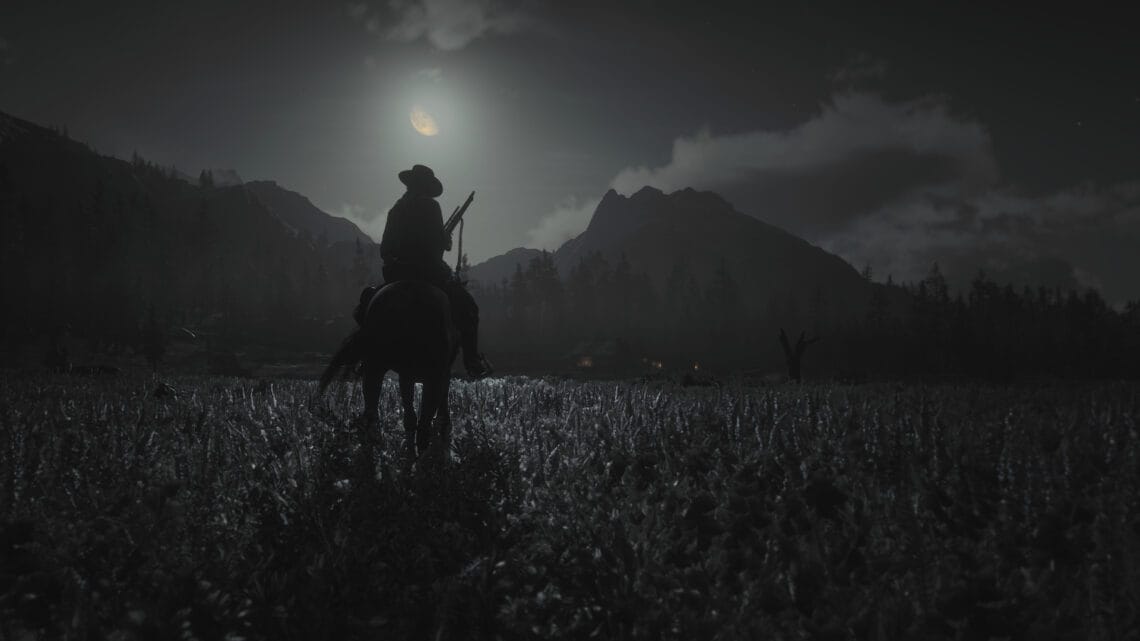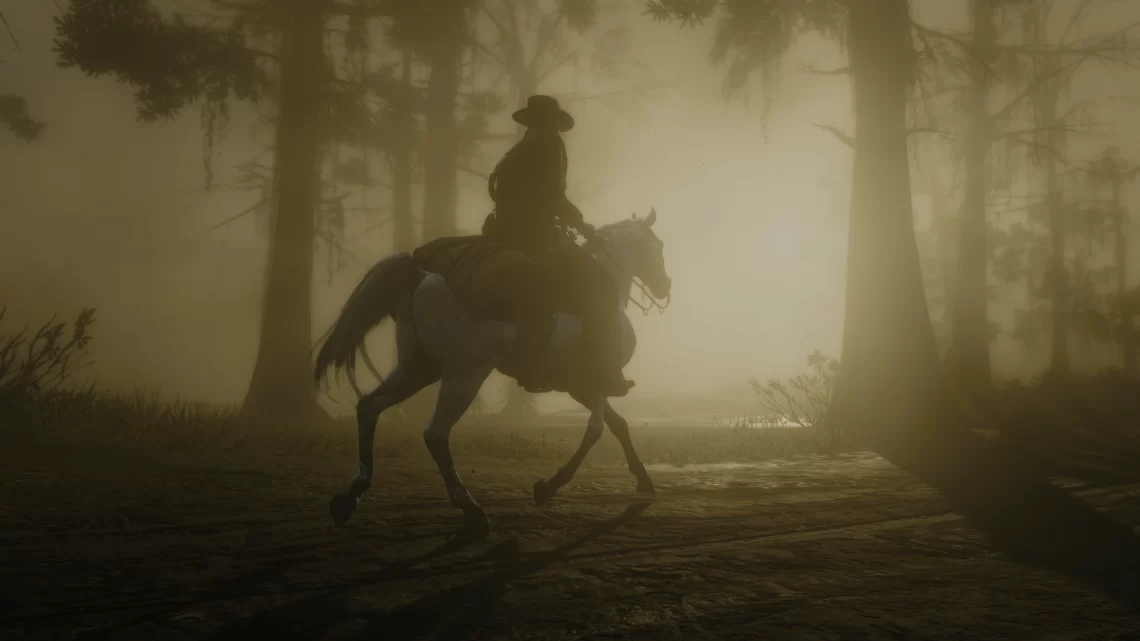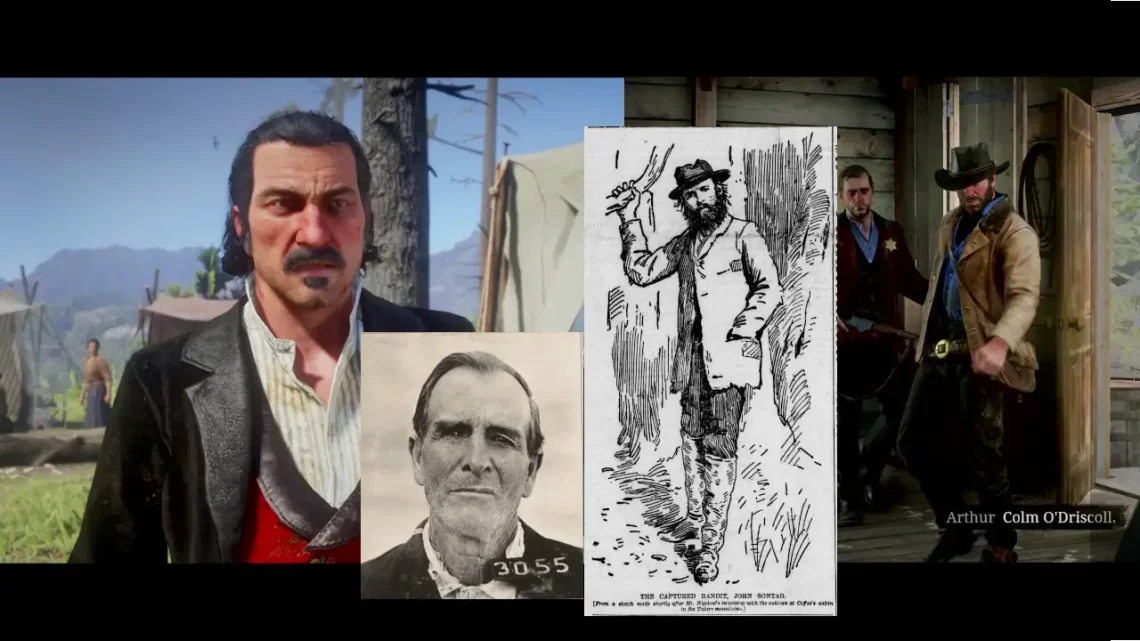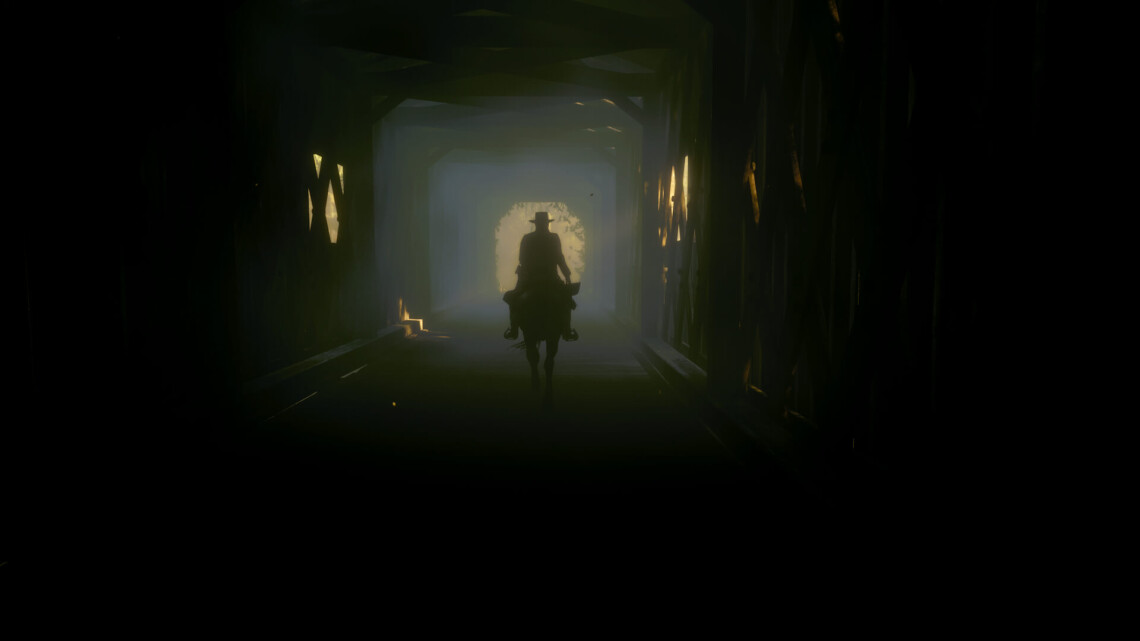Red Dead Redemption 2 is a paradox: despite justifiably being called one of the greatest games ever made, as a work of narrative art, it falls short of greatness. In aspects — the standout performances, the rendition of characters’ facial expressions, the golden choruses of the sunsets — it is superb. However, despite the story's powerful effects, RDR2's reputation as a superlative work is undeserved. Some of its formal problems are, perhaps, inevitable in a narrative form as nascent as the video game. Plot holes break the fabric of the story here and there.
More allusions to Oakley Hall's Warlock in RDR2: horses, events, dialog, and more.
Warlock — an 1958 Western by American novelist Oakley Hall — influenced Red Dead Redemption 2 deeply. Its complex plot is loosely based on iconic elements of the incidents now known as the Gunfight at the O.K. Corral and the Johnson County War. Like RDR2 itself, it reimagines and reworks its source material. Tombstone, Arizona, becomes Warlock, a frontier town plagued by random acts of violence: a group of men associated with local rancher Abe McQuown shoot the place up, rustle cattle, and rob stagecoaches. Because the state governor, General Peach, is senile, he hasn't issued Warlock a town patent, which means the townspeople have no authority to hire a…
When considering race and anti-Black racism, Black perspectives are the most vital. That said, too often, we act as though being white is an automatic, default, or neutral position instead of considering the precise ways in which racism distorts white perspectives and beliefs. RDR2's portrayal of the white perspective is unconsidered and obscures historical realities. Arthur's demonstrable ignorance of white peoples’ prevalent attitudes in “Preaching Forgiveness as He Went” and “No Good Deed” denies the realities of the time and is totally unbelievable: in no way were white supremacist acts of violence, let alone beliefs, confined to the South.
The history of the Wild West is so enshrouded in myth, lies, obfuscations, half-truths, and rumor that once these delicate layers are peeled back, the definite facts they're mounded on seem scant enough to be scattered by a breeze — if they weren't weighted with blood and gold. Famous figures like outlaw Emmett Dalton and Wyatt Earp's wife, Josephine, intertwined the bare facts of their lives with legend. In the attempt to immortalize themselves, they erased themselves: it is not always clear whether something really happened, let alone how it happened or who did it.
If any aspect of RDR2 is perfect, it's the light. Rich and golden, the sunsets and dawns immerse the player in the game's themes — nostalgia for a lost world; wonder at nature — drawing on the senses to create poignant emotion. That light, itself, is an allusion to a 19th-century artist who in turn inspired one of the game's most charming minor NPCs.
Frankenstein, by Mary Wollstonecraft Shelley, is the first science fiction novel. Famously, it was conceived as part of a contest between Shelley, her husband Percy, and their friends Lord Byron and John William Polidori. The group was staying in Geneva, where Byron rented a house called Villa Diodati. They were “delighted to learn that Milton had once stayed there, an astonishingly good omen for this group who by now saw themselves as fallen angels, like Milton’s Satan: rebellious and misunderstood” (Gordon 168).
During “A Fine Night of Debauchery,” Arthur Morgan grumbles to Josiah Trelawny, “This ain't Hamlet.” This is the writers begging us to notice that this is Hamlet. Happy to oblige. After the death of his father, Hamlet's uncle Claudius marries Hamlet's mother, Gertrude, and becomes king. One of the senses of discomfort this creates — the rottenness in the state of Denmark — is that Hamlet is of age. Under the rules of primogeniture, he should be king. Arthur is similarly infantilized.
Allusions to William Shakespeare's The Tempest are among the most obvious references in RDR2 — and yet, other allusions to the Bard's work are so subtle we almost have to guess at them. The game doesn't make direct allusion to King Lear or Othello, but the influence of those dramas is clear. Those plays feature a scheming villain spitting poison in the ear of a noble-but-tragically-flawed leader and a loyal but hapless child or follower who dies as a result of the leader's weakness: a plot that RDR2 reworks beautifully. However, this is an influence felt, not named. Other Shakespearean works are alluded to more directly. We’ll begin by discussing…
Finishing our journey through the intertwined Eden and Hell of RDR2.
